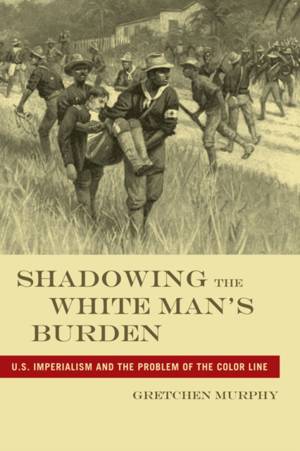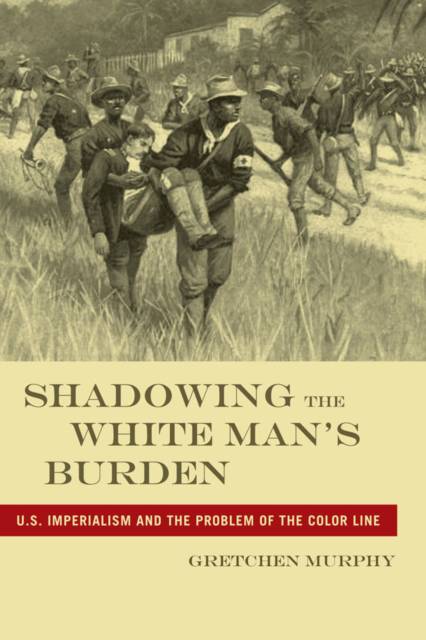
- Afhalen na 1 uur in een winkel met voorraad
- Gratis thuislevering in België vanaf € 30
- Ruim aanbod met 7 miljoen producten
- Afhalen na 1 uur in een winkel met voorraad
- Gratis thuislevering in België vanaf € 30
- Ruim aanbod met 7 miljoen producten
Omschrijving
During the height of 19th century imperialism, Rudyard Kipling published his famous poem "The White Man's Burden." While some of his American readers argued that the poem served as justification for imperialist practices, others saw Kipling's satirical talents at work and read it as condemnation. Gretchen Murphy explores this tension embedded in the notion of the white man's burden to create a new historical frame for understanding race and literature in America.
Shadowing the White Man's Burden maintains that literature symptomized and channeled anxiety about the racial components of the U.S. world mission, while also providing a potentially powerful medium for multiethnic authors interested in redrawing global color lines. Through a range of archival materials from literary reviews to diplomatic records to ethnological treatises, Murphy identifies a common theme in the writings of African-, Asian- and Native-American authors who exploited anxiety about race and national identity through narratives about a multiracial U.S. empire. Shadowing the White Man's Burden situates American literature in the context of broader race relations, and provides a compelling analysis of the way in which literature came to define and shape racial attitudes for the next century.
Specificaties
Betrokkenen
- Auteur(s):
- Uitgeverij:
Inhoud
- Aantal bladzijden:
- 288
- Taal:
- Engels
- Reeks:
- Reeksnummer:
- nr. 24
Eigenschappen
- Productcode (EAN):
- 9780814795989
- Verschijningsdatum:
- 3/05/2010
- Uitvoering:
- Hardcover
- Formaat:
- Ongenaaid / garenloos gebonden
- Afmetingen:
- 155 mm x 229 mm
- Gewicht:
- 498 g

Alleen bij Standaard Boekhandel
Beoordelingen
We publiceren alleen reviews die voldoen aan de voorwaarden voor reviews. Bekijk onze voorwaarden voor reviews.











